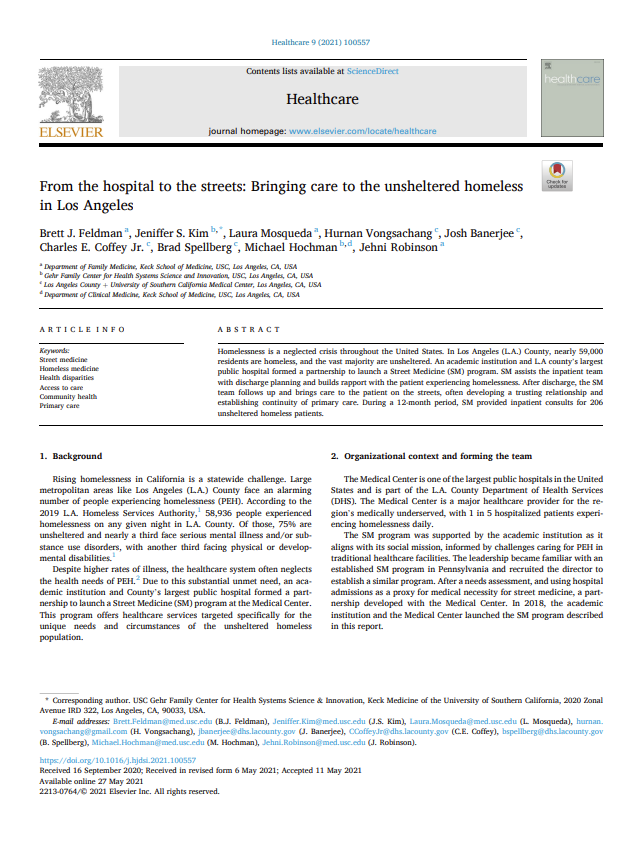Headline
A street medicine program increased post-hospitalization follow-up care for unsheltered individuals experiencing homelessness in Los Angeles.
Context
In Los Angeles, a significant number of people experience homelessness, with a large portion facing serious mental illness, substance use disorders, and physical or developmental disabilities. The healthcare system often neglects these individuals, leading to unmet medical needs and a lack of continuity in health care services. This article discusses the development and implementation of a street medicine program in Los Angeles County, California, designed to address the unique healthcare needs of unsheltered individuals.
Findings
Launched in 2018, the street medicine program was initiated through a partnership between an academic institution and L.A. county's largest public hospital. A key aim of the program was to provide follow-up care for unsheltered patients experiencing homelessness after hospital discharge to address high no-show rates for follow-up clinic appointments and increased hospital readmissions and emergency department visits among this population. The street medicine team — consisting of a physician, physician assistant, registered nurse, and community health worker with lived experience of homelessness — delivers care directly to patients where they reside. The program offers a full spectrum of primary care, mental health care, substance use treatment, medication dispensation, and social support services. Additionally, the program facilitates housing placement through partnerships with community-based organizations.
Initial results of the program showed promising outcomes, including higher follow-up rates for street medicine patients compared to patients experiencing homelessness referred for traditional care. Housing placement was also a secondary goal, and the program was able to connect a significant portion of patients to transitional housing or permanent housing.
Takeaways
The article highlights the importance of addressing the health care needs of unsheltered individuals experiencing homelessness, the importance of taking time to establish relationships and build trust in this work. The article also emphasizes the potential of the street medicine program in supporting high-risk, hospitalized patients who choose to transition back to the streets. The authors attribute program success to a strong partnership between the academic institution and the hospital, which actively participated in program design and implementation efforts.

